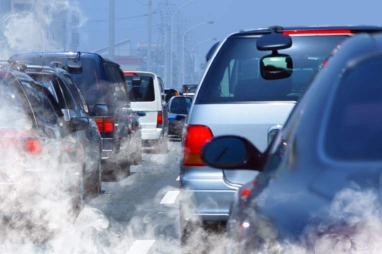- Nike Air Max 90 Black Red DX9272 , SBD - Майки для бігу nike - 001 Release Date
- Nike air jordan max 13 hologram Bred Black Red 2019 Release Date , air jordan max 1 rebel chicago white varsity red black , IetpShops
- nike lebron x nike pink green hair women 2017 DM7597 - 100 Release Details - StclaircomoShops - scarpe nike air max silver metallic
- adidas Basic Insulated Μπουφάν
- air jordan outlet legit reddit
- 554725 113 air jordan 1 mid white black 2020 for sale
- air jordan 4 white tech grey black fire red ct8527 100 release date
- air jordan 1 mid chicago 2020 554724 173
- Air Jordan 1 University Blue 555088 134 Release Date Price 4
- Usher Air Jordan 11 Gold Sample
- Home
- News and analysis
- Info hubs
- Events
- Video
- Case Studies
- About us
- Magazine
- Advertising
Produced for the industry by the Association for Consultancy and Engineering
Opinion
Keeping the politicians honest on air pollution

Air pollution is not a simple issue and politicians need expert help if they are to get to grips with the issue, says Matthew Farrow.
With the polls putting Sadiq Khan ten points clear, Zac Goldsmith’s ill-fated London mayoral campaign made its last push on Wednesday 4 May, with the front page Evening Standard that day emblazoned with the banner headline ‘I’LL BE THE GREENEEST MAYOR EVER’ – ZAC. The Tory candidate also secured the editorial support of the paper which justified its choice largely on the basis of him having a superior vison for an environmentally sustainable London than Sadiq Khan.
Of course Khan still won the mayoralty comfortably (if slowly) on Friday, but Goldsmith’s last throw of the dice was symptomatic of a London mayoral campaign in which green issues featured prominently for the first time. Zac of course has a long track record of environmental campaigning but Sadiq Khan had ended up putting similar emphasis on environmental issues. Even Diane Abbott, when she was angling to be Labour’s candidate for mayor a year ago, suddenly discovered an environmental passion and called a Parliamentary debate on London air quality.
Bandwagons such as this can be useful to a lobbying organisation like my own and we have worked with the Evening Standard and other stakeholders to keep air quality in particular high on the political agenda. But while bandwagons may get you moving in the right direction, they are not so useful when scientific nuance and policy technical detail need to be got right.
Air pollution is not a simple issue. There are a mix of pollutants that interact with each other and with atmospheric conditions, a wide mix of emissions sources make subtly different contributions to the problem, the science on health impacts is evolving and almost all transport, planning and energy policy decisions affect air pollution in some way or another (for example the London CHP target introduced as a carbon reduction measure has had a deleterious effect on air quality as recent work by Policy Exchange has shown). And the Euro standards fiasco (where technical standards for motor manufacturers that were supposed to be tougher actually led to higher NOx emissions because low real world engine operating temperatures weren’t factored in) shows what can happen when politicians and policy makers do not fully get to grips with the detail.
The environmental sector needs to play its part in helping our elected representatives work through these details. That’s why EIC has just set up an All Party Parliamentary Group on Air Pollution – the first APPG to focus on this topic. I’m delighted that Matthew Pennycook, the Labour MP for Greenwich, with whom we’ve been working to get the group up and running, has been elected as chair and we will shortly be arranging an initial meeting for MPs which will take the form of a briefing session, after which we will be having regular events to bring together MPs and key stakeholders.
If you’d like to be involved and become a member of the APPG on Air Pollution then please get in touch at matthew.farrow@eic-uk.co.uk
Matthew Farrow is the executive director of the Environmental Industries Commission (EIC), which represents the businesses which provide the technology and services that deliver environmental performance across the economy.
This article was first published on the Business Green website.





